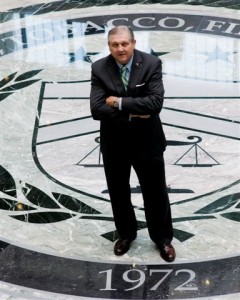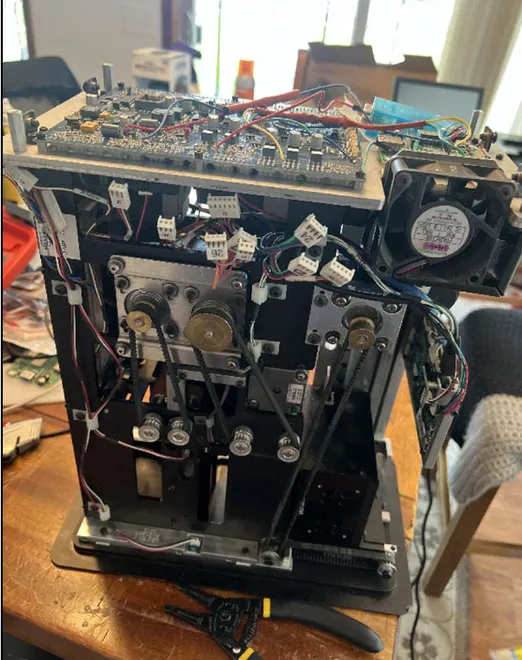
America is now witnessing a democratic movement that is taking to the streets the likes of which we have not seen since 1968. As this phenomenon develops we should all realize how overwhelmingly peaceful these gatherings have been.
Think about spontaneous gatherings across the nation where citizens choose to gather based on their constitutional rights to peacefully assemble and to air their grievances. We talk much in America about constitutional rights. We wave pocket constitutions and we all profess to revere the Constitution.
Nevertheless, that requires that we recognize the Constitution when it is in action. It is not always pretty and it is not always totally organized, it does not always speak with one voice, it is not always the model of organization or civility, but therein lies the essence of its absolute brilliance. So thousands gather across many cities forming ad hoc mini democratic societies in which they try to clean up the area, cook food, provide places for soapbox speeches, carry signs and verbalize their frustrations.
Naturally this is a disruption to the status quo of the area. Most of these venues are public gathering places or public parks. Places that should be the most natural gathering places for citizens to air their grievances.
So the gathering is logical, and it’s constitutionally protected. In America we can have these gatherings without tanks or troops, and we should have them without fear of death or injury. No one who is criticized by the protesters will be sacrosanct: Not bankers nor politicians, not the media nor the mayors, not corporations nor fat cat hedge fund leaders, and certainly not the police.
Everyone will be criticized and so it is in a democracy. However the only group that has to interact directly with the protesters is the police. And for the police comes a special duty, that special duty to protect the Constitution by defending the right of the protesters to protest. While the police are doing what they must, they must also protect the safety and security of the protesters and all citizens who might be in the area. And they must maintain peace and order. Remember that although constitutional rights are broad they do not encompass the right to hurt others.
What law-enforcement leaders should do and what most have done so far is to exhibit a tremendous amount of patience and understanding. Simply because the movement is as I described above, constitutionally protected and overwhelmingly nonviolent. Police commanders should deploy negotiators, specifically police crisis negotiators, who can set up in a vehicle near the site and work with the leaders of the occupy movements to see what the plans are for the day and the weeks ahead.
Police Negotiators are greatly underutilized in police work. Negotiators can work with representatives of the occupy movement to gain understanding, a level of trust. It does not mean that the police will do everything that the protesters want, but it insurers that police will not act without first building trust and communication.
Sometimes law-enforcement, because of fast developing events feels a compelling need to act. We in law enforcement know this as “action imperative”, the feeling that based on the crescendo of events, action must be taken. However, it generally takes you in the wrong direction. Police crisis negotiators can help commanders to defeat action imperative, and to work with the occupy Wall Street protesters, the overwhelming majority of whom are peaceful, and together come to a meaningful and common sense agreements.
The NYPD set a great example by acting with restraint. There is nothing more impressive than power with restraint. Powerful groups like the police who exhibit restraint gain trust and respect from all that they must deal with. I like to call it the strong silent type. Police don’t need to prove their strength; they have it and have to use it at the right time. Restraint and communication using police crisis negotiators will help commanders defeat action imperative. Also understanding the Constitution in action will help America get through this new movement.
As one example, a middle-aged elected official sits on a concrete plaza to protest. We have to realize he or she has the Constitutional right. From a police command perspectives we also have to evaluate how long can that person actually sit there. Physics are reality. It might rain, it might become hot or cold, the person must eventually eat or go to the restroom.
They will get fatigued or feel they have proved their point. The Police Commander must ask themselves is it absolutely necessary this time to arrest this person? Or could the police commander wait?
I have watched a video of the protest in Oakland where a clearly wounded Marine veteran is laying in front of the police barricades and a group of protesters, obviously and clearly goes up to help him. While the small group is gathered around him police officers are seen tossing tear gas and what appears to be either a flash bang stun grenade or a sting ball grenade. The detonation of a grenade is immediately next to the wounded man’s head.
This clearly would not be the proper deployment of a stun grenade or sting ball grenade at a wounded man, or those who are trying help him. We don’t know the extent of his injuries prior to that videotaped event but we clearly need an investigation to find out what exactly happened. It must be noted that Oakland police faced rocks and bottles from protesters and that cannot be countenanced or supported or diminished. Nevertheless, trained riot police can deal with that scenario without tossing stun or sting grenades at a wounded man.
In the final analysis if the occupy Wall Street movement transmutes itself into an occupy the voting booth movement, the result is it will have some effect on the body politic.
Law-enforcement’s duty remains to keep everybody safe, even the protesters, and to act with patience and understanding first, and quiet measured and appropriate strength when required.





